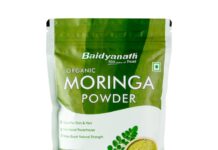Elanpro, an Indian refrigeration solution provider, has been providing advanced cooling technology since 2009. The company offers solutions in sectors such as HoReCa, bars, food retail, pharmaceuticals, and healthcare.
Over the past 14 years, Elanpro has introduced a diverse range of products tailored to work in India’s challenging weather conditions, ensuring quality, consistency, and durability. To address the issues of food and medical waste, the company acquired Thingif(y), an AI-enabled temperature monitoring system. Thingif(y) empowers users to monitor and control temperature, pressure, humidity, and volume in their environments, helping combat waste effectively. Elanpro expanded its portfolio by acquiring ICold, a cold storage solutions provider.
IndiFoodBev had an interaction with Sanjay Jain, director of Elanpro, who spoke about his stint in the cold chain industry and the company’s humble beginnings. Jain said the company’s new acquisitions and identity as a holistic B2B solutions provider resulted in a revenue of Rs 240 crore in FY 2023-24. The company recently launched an array of eco-friendly solutions, including India’s first ‘reach-in freezer‘ featuring an ‘inverter technology compressor‘, the latest generation of ‘blast freezers’ equipped with menu-driven preservation technology, and pass-through ‘under counters‘.
Before Elanpro, Jain and his friend started Celfrost in May 2004. “Celfrost today is an American company. It was taken over by Middleby, a global catering equipment brand. In 2009, after working for five years, we had a split in the organization and we decided to restart. This time we had experience and were aware of the industry. The confidence was rock solid. The customers were known and the suppliers were aware of our stint, which made it easier to sail another ship.”
A new venture is a new venture, so one needs to redo everything, Jain says. “The first venture gave us jitters for a couple of months. During the second venture, I had no jitters from day one. I was very clear that this is something we can do. Shashank and I, who both came out from Celfrost, started this business with my brother Ranjan. My brother’s joining was an advantage as he comes with a wealth of experience in different fields.”
The cold chain industry in India is still developing and the technology is still evolving. The first technology Elanpro adopted was based on the Zigbee protocol (a wireless communication protocol for short-range, low-power, and low-cost applications). He explained that Zigbee has a strong, small network and is economical, but it has its challenges because the sensors are without any wire, which means you need to put them inside the cabinet. They go inside the cabinet, which gives you an advantage because you don’t need wiring and it can be adopted in any other field.
“But simultaneously there is a challenge because the battery drains faster than it is at minus twenty and insulated walls obstruct the transfer of data. The Zigbee protocol is good to work with one to one. However, when it has to work on multiple levels in a larger area, it creates a little bit of a challenge. Then to improvise further, we have adopted Bluetooth. We have developed Bluetooth technology where we have a wired sensor that can be inserted in the cabinet and have a larger range.”
He explained how the technology works. “You can have one main frame with multiple sensors spread over. For instance, a hotel, say this place, is a 500 square feet area and has 20 different machines spread all over. You can connect to each unit of sensor with the main frame. The idea of refrigeration is unlike air conditioning, which doesn’t work 24/7, leaving aside hospitals or hotels. If a coffee shop is closed in the evening, the air conditioning is shut. But in refrigeration, you cannot shut off counting electricity as the biggest cost. It’s not human comfort, different products require different temperatures. Cake, for example. If you don’t maintain a certain temperature below four degrees, the cream starts splitting. You can see lines coming up, or the chocolate may start melting. If you have a fresh fruit, it may get spoilt.”
Other important factors include quality, taste, and aesthetics. Temperature management is important. To maintain the quality of meat, you need to maintain below two degrees. If it goes above two degrees, you have to throw it out. AI and cloud computing will be the enablers in this aspect as specific food and beverage segments require a specific temperature for a healthy shelf life.
The refrigeration solutions by Elanpro are gaining traction. Jain explains, “We started selling our equipment to SAARC countries such as Nepal, Bhutan, and some African countries. But as of now, we have not ventured in a big way in Africa or Europe. My dream is to become a global player.”
Freight cost is another big factor impacting profitability. The exchange rate is another pain point because both the Euro and Dollar have gone up, directly affecting EBITDA. After all, you can’t increase the price as you’re competing with the local manufacturer, he said.
“Similarly, in the import regime, your entire planning is three to four months, which means your response time is restricted by whatever you planned four months back. If there is an opportunity, you can’t encash it because you can’t produce it. If you have to import, it will take two months. If you do wrong, you are settled with a lot of inventory because there was no time for correction.”
Jain feels the cold-chain market in India is growing as all big players are focused on projects such as air conditioners. “For us, the market must know us as a refrigeration expert. We don’t dilute our energy by doing too many things. We think breathe, sleep, we do everything refrigeration.”
IndiFoodBev — authentic, impactful and influential
An English-language food and beverage processing and packaging industry B2B platform in print and web, IndiFoodBev is in its third year of publication. It is said that the Indian food and beverage industries represent approximately US$ 900 billion in revenues which implies more than 20% of the country’s GDP. Eliminating the wastage on the farmside can help to deliver more protein to a higher number of the population apart from generating sizable exports. The savings in soil, seeds, water, fertilizer, energy and ultimately food and nutrition could be the most immense contribution that country is poised to make to the moderation of climate change.
To improve your marketing and grow sales to the food and beverage processing and packaging industry, talk to us. Our research and consulting company IppStar [www.ippstar.org] can assess your potential and addressable markets in light of the competition. We can discuss marketing, communication, and sales strategies for market entry and growth.
Suppliers and service providers with a strategy and budget for targeted marketing can discuss using our hybrid print, web, video, and social media channels to create brand recognition linked to market relevance. Our technical writers are ready to meet you and your customers for content.
The second largest producer of fruit and vegetables in the world is continuously expanding processing capacities and delivery systems with appropriate innovative technologies. We cover product and consumer trends, nutrition, processing, research, equipment and packaging from farm to thali. Get our 2025 media kit and recalibrate your role in this dynamic market. Enhance your visibility and relevance to existing markets and turn potential customers into conversations. Ask for a sample copy of our bi-monthly in print or our weekly IndiFoodBev eZine each Wednesday.
For editorial info@ippgroup.in — for advertisement ads1@ippgroup.in and for subscriptions subscription@ippgroup.in
Naresh Khanna – 10 February 2025
Subscribe Now











